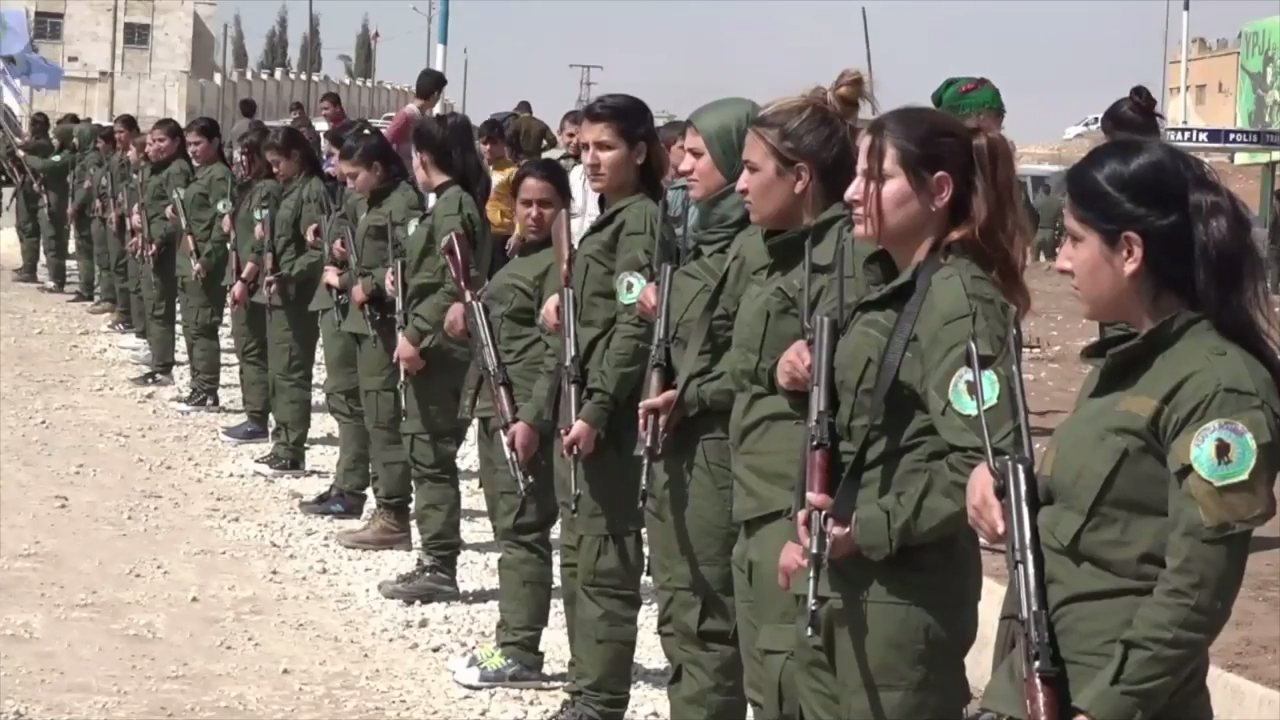“Our only friends are the mountains.” So goes the fatalistic Kurdish proverb, encapsulating the catalogue of duplicity and betrayal by allies that has punctuated and ultimately defined the history of this valiant people. The stateless ethnic group, numbering approximately 30 million, straddles the borders of Iran, Iraq, Syria and Turkey. It is the Kurds in Syria who suffered the most recent treachery, when President Trump on Dec. 19 announced the complete withdrawal of U.S. troops from Syria, where the Kurdish-led Syrian Democratic Forces, or SDF, were among America’s most faithful and effective partners in the fight against Islamic State terrorists.
Trump initially said the 2,000 U.S. troops would be gone within 30 days but reportedly has agreed to Pentagon requests for a gradual withdrawal over four months. The betrayal thus will occur in slow motion.
Yet, like their brethren in Iraq, the Peshmerga fighters, the Kurds in Syria could be a case study in the effective implementation of America’s long-standing exhortation that its friends in the region should do more of the actual fighting while the United States trains and assists them.
As Post columnist David Ignatius noted in a Dec. 23 op-ed, since 2014, the Kurds and their allies have taken control of a remarkable 30 percent of Syria and captured Raqqa, which the Islamic State had claimed as its capital — and over that period suffered 4,000 men and women fighters killed and 10,000 wounded. During that four-year span, the United States lost three soldiers, according to the Pentagon. The Kurdish commander of the SDF, Gen. Mazloum Abdi, told Ignatius that Trump’s pullout announcement was “something we never expected.”
Among the factions fighting in the Syrian civil war, which began in 2011, it can sometimes be difficult to discern who the “good guys” are — except when it comes to the Kurds. Even as they have waged a years-long war against the Islamic State in northeastern Syria, they have governed a population of about 2 million people with a degree of respect for religious freedom, gender equality and minority rights unknown in that part of the world. They are detested by Turkish President Recep Tayyip Erdogan because of their association with Kurdish separatists in Turkey. With the United States leaving, Erdogan will almost certainly launch a concerted military campaign against the Kurds in Syria. Trump’s reckless move is likely to drive them into the arms of Syrian President Bashar al-Assad as they seek to avoid annihilation.
When the annals of this deplorable episode are written, historians will be able to draw a dramatic contrast between the U.S. president and the leader of a steadfast European ally of the United States.
French President Emmanuel Macron, since taking office in 2017, has only strengthened France’s support for the Syrian Kurds and the SDF. He has committed additional air and land forces to the U.S.-led coalition, and last March he received SDF leaders in Paris, praisingtheir soldiers’ sacrifices in the fight against the Islamic State. After Trump announced his military volte-face in December, Macron moved quickly to assure the SDF that he would not march in lock step as Trump flees.
While visiting French troops in Chad in December, Macron said he “deeply regrets” the U.S. decision. “The SDF is fighting against the terrorism that fomented attacks against Paris and elsewhere . . . I call on everyone not to forget what they have done,” Macron said, notingthat “to be allies is to fight shoulder to shoulder.”
Macron’s stand recalls the dedicated support for the Kurds from Danielle Mitterrand, the wife of French President François Mitterrand, as they came under assault from Saddam Hussein in the early 1990s. Shortly after a U.S.-led coalition ousted Hussein’s troops from Kuwait in 1991, President George H.W. Bush urged Iraqis to overthrow Hussein. Kurds in the north and Shiites in the south answered Bush’s call. But the expected U.S. assistance never arrived, and a slaughter ensued. Danielle Mitterrand, outraged, helped wage a successful campaign to secure a no-fly zone over northern Iraq to protect the Kurds. She survived a bomb attack on her motorcade as she visited the region in 1992.
To this day, Mitterrand is known as the “mother of the Kurds.” Her name graces schools and roads across Kurdistan, the unofficial state where Kurds predominate. There are Kurdish girls named for her. Macron is likely to have his own Kurdish namesakes someday. But Trump? One can still hope that he has a change of heart, that he realizes the Islamic State is far from vanquished, as he claims, and has 14,000 fighters still in Syria, as his own government acknowledged in August. With every hour that goes by, the Kurds’ position is materially weakened. It is not too late for Washington to change course, to reaffirm America’s honor and to aid America’s stalwart allies.
Thomas S. Kaplan and Bernard-Henri Lévy are the co-founders of Justice for Kurds.

